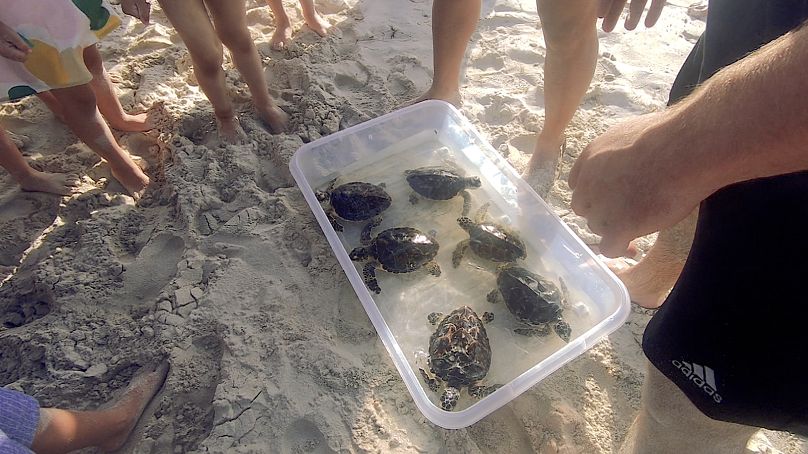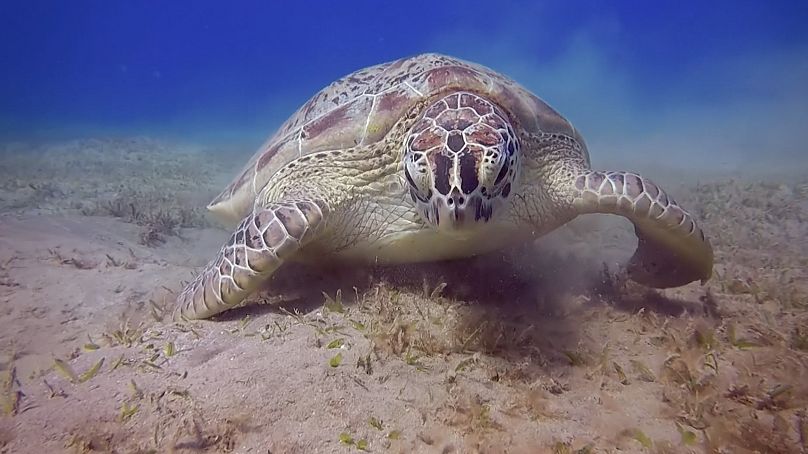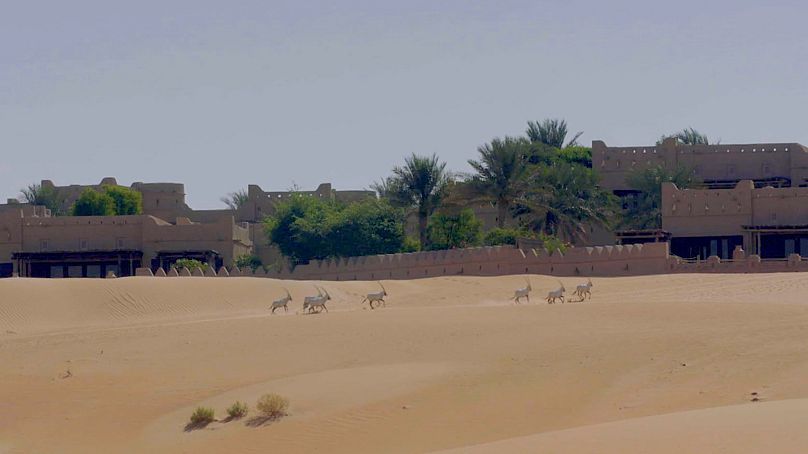Approximately 80 Hawksbill turtles, which were rescued last winter, have been rehabilitated and returned to their home in Arabian Gulf this April.
Approximately 80 Hawksbill turtles, which were rescued last winter, have been rehabilitated and returned to their home in Arabian Gulf this April.
 ADVERTISEMENT
ADVERTISEMENT
 ADVERTISEMENT
ADVERTISEMENT
The marine conservation project, conducted in association with the Environmental Agency of Abu Dhabi and the Dubai Turtle Rehabilitation Project, was supported by eco-conscious tourists at the Jumeirah at Saadiyat Island Resort beach in the capital.
The species, which get its name from its beak-like mouth and two claws on each flipper, is amongst the estimated 7,000 sea turtles in the UAE’s waters.
The Hawksbill population globally, which has been decreasing for more than a decade, is now critically endangered according to the International Union for Conservation of Nature.
The creatures wash up on sandy shores during the winter months, weighed down with barnacles attached to their shells, which can lead to malnutrition and infection.
Marine biologist Emily Armstrong works for the luxury eco-friendly hotel Jumeirah at Saadiyat Island Resort, which launched in Abu Dhabi five months ago.
She says that the human factor, such as collisions with speed boats and the littering of single use plastic, can jeopardise the existence of Hawksbills which can lay up to 115 eggs per nest every two to three years.
The world’s population of birds, mammals, fish, reptiles and amphibians fell by around 60% from 1970 to 2014, according to the World Wildlife Fund.
To do their bit to improve the situation, some hospitality outfits in the UAE are looking to protect the environment while maintaining business as usual.
In the emirate of Sharjah, the Kingfisher Lodge offers a nomadic tent experience allowing guests to kayak through mangroves, witness sea turtles hatching and spot rare bird species.
It’s a type of sustainable tourism that some experts say is on the regional rise.
"Ecotourism is now something that's exploring market segments such as luxury one,” says Jasmina Popov-Locke, a programme development director at Modul University in Dubai.
In contrast to ecotourism, the concept of egotourism has also been floated in recent years. The word describes travellers who are supposedly looking to visit exotic sustainable locations more for the purpose of showing off, rather than ecology.
Popov-Locke says that while the minority of these tourists may unintentionally leave an environmental footprint behind, the ecotourism sector will not be majorly impacted.
"As long as it's controlled and sustainable, to an extent, I wouldn't question people's motivations for going to certain places,” says Popov-Locke.
The global ecotourism market is expected to rise to values in the high millions by 2023, according to Orbis Research, as travellers continue to look to combine relaxation and sustainability.
SEEN ON SOCIAL: ECO KID
Blessie from the Philippines attended the turtle release in Abu Dhabi with her daughter and taught her about conservation.













